- Home
- Anne Frasier
Stay Dead (Elise Sandburg series) Page 6
Stay Dead (Elise Sandburg series) Read online
Page 6
While they ate the pizza they’d picked up from Vinnie Van Go-Go’s, they discussed the newest murder. And Elise voiced her biggest concern, one she’d originally thought to keep to herself: “Maybe Tremain wasn’t working alone.”
David looked up from his seat on the other side of the wide coffee table, pizza forgotten.
“Which is why I want to visit Tremain’s house,” Elise said. “I doubt people were combing it very thoroughly back when we all thought the case was closed and Tremain wouldn’t live.”
“The Kingfield murder doesn’t really fit Tremain’s MO.” David got to his feet and began cleaning up. With a gesture, he asked if she was done with her plate. She nodded, and he carried it to the sink and began running water. Earlier, he’d kicked off his shoes, untucked his white dress shirt, and rolled up his sleeves a few turns.
“There are a couple of tangelos in the refrigerator,” Elise told him.
He looked and shook his head. “No tangelos.”
“Yes, there are.”
“No, there aren’t.” He shut the refrigerator door. “Tremain’s a loner through and through,” he said, getting back to the conversation.
“It’s just weird.” A lot of weird things going on lately.
David turned around, crossed his arms, and leaned against the counter. “My gut tells me there’s no connection.”
At one time, David had been one of the FBI’s most promising profilers. Elise trusted his instinct and felt reassured by his take on the recent homicide. But she still wanted to go to Tremain’s house.
CHAPTER 12
Using a crowbar, David pried the plywood from the front door while Elise stood watching, crutches under her arms. In the house next door, a curtain moved as a curious neighbor watched from the safety of her own home. How odd it must have been to find cops and detectives swarming the lot next to yours. Would you ever feel safe again? Would you ever look at your neighbors in the same way? Would each and every one be suspect?
It had happened to Elise. When you dealt with bad people all day long, pretty soon everybody was painted in dark colors. The world was painted in dark colors.
But today . . . today was lovely. It was another surprisingly cool day for November, and they were both dressed for the weather: David in his black coat, Elise in a pale vintage jacket with giant buttons she’d found in Anastasia’s closet.
A breeze was blowing off a nearby marsh, and birds called overhead. The sky was so blue it hurt her heart, and the occasional cloud almost needed a happy face. The day was that perfect. All a stark contrast to what they would find once they entered the building.
David hefted the sheet of plywood aside and pulled a key from his pocket.
The house was one of those places you pass and wonder if anybody could possibly live there. An overgrown yard. Trash caught in dying shrubs, a tarp over one side of the building, a collapsing fence, and vines growing from wood so rotten water would seep out if you gave it a squeeze. It was a place you could smell from the street. Not a real smell, but an imagined one of rotten food and feral cats.
David shouldered open the door. Even though it was sunny outside, a black rectangle waited to swallow them.
Over the years, Elise had learned to shut off the emotional part of her brain when dealing with crime scenes. That skill was so second nature to her that she found herself looking at the house with the eyes of someone who’d never been there before.
David flicked the light switch. “No power.” He pulled out a flashlight and moved inside. Elise followed, the act of stepping over the threshold bringing back the minutes that led up to her capture.
He’d trapped her. Atticus Tremain, the man who was now in a coma at Memorial Hospital, had lured her to his home and trapped her. So easily. Using Audrey as bait. Elise had gotten a call at work from Tremain, who’d posed as a parent. He’d told Elise that Audrey was at his house, and that she and his daughter had skipped school.
Elise drove there. She got in her car and drove there. To the address he’d given her. She’d marched up to the house, and she’d knocked on the door.
There was no Audrey. Audrey was safe at school, but Elise hadn’t known that. Immediately assessing the situation, she’d realized something was very wrong.
“Watch your step.” David panned the broad beam of light across the dirty vinyl floor. Nicotine-stained curtains hung over the windows above a sink stacked high with dirty dishes. Trash everywhere. Twisted clothes mixed with fast-food containers. She could smell mice and rats.
“I have to say, this doesn’t look like the kind of place you’d walk into with no backup,” David said.
“He said he had Audrey,” Elise said. “The cop in me vanished. I was a mom trying to save her daughter, and yet I still can’t believe I fell for it.”
“It’s different when it’s our kids,” David said. “It’s easy to fall.”
Using the tip of a crutch while trying to remain detached, she pushed a pile of trash aside. “I feel bad that I was so quick to believe she’d ditched school in the first place.”
“Oh, come on. We both know Audrey. I love that kid, but I’m sure she’s ditched school more than once.”
Elise laughed. She couldn’t believe she laughed. In this place. The sound was so strange, as if nobody had ever laughed here. But David was right about Audrey. She was a handful.
In the living room, the very blandness told a story, the space devoid of personality unless you considered the conditions a personality. The furniture matched. Dirty, stained, but it matched. Most likely purchased at one of those shops where a whole ugly room could be delivered.
She knew the specs on Tremain. Quiet. Kept to himself. Seemed nice, but when pressured neighbors finally admitted that he’d always given them the creeps. But Elise knew people were prone to those kinds of comments after a kidnapping. After someone did something horrific. In retrospect, every criminal was an oddity once people understood that the guy they said hi to on a daily basis was some murdering psychopath.
“Wanna talk about it?” David asked.
She remembered little of those last hours at Tremain’s house. Maybe because she’d lost so much blood, maybe because she’d simply blocked it out. But she remembered David. Running his fingers down her face. Covering her, wrapping a blanket around her. Telling her everything would be okay. That she would be okay.
She’d asked him about Audrey, and he’d said she was fine. And she may have apologized for being so stupid, for walking into a trap. And he may have shushed her, telling her it was okay.
“Is he dead?”
That had been her next question.
And she remembered the hesitation in David’s eyes. And his reluctant reply. “No.”
She’d let out a sob because she couldn’t stand the thought of that monster being alive. But if he ever came out of the coma, he’d go to trial. He’d go to prison. He might be put to death. Thank you, Georgia.
“You think that’s why I wanted to come here?” Elise asked. “To talk about it?”
“The thought crossed my mind.”
They moved down the hall. “You don’t know how many times I’ve imagined visiting him in the hospital and finishing him off,” she said, trying to keep her mind from returning to the days she’d spent here. She could allow herself to recall before and after, but not during. Not yet. “But then I think about Audrey. I think about going to prison for murdering him. He’d win if I did that.”
David paused and turned to her. “I actually went to the hospital. I was going to remove his oxygen and smother the bastard.”
“But you didn’t.”
“No. I didn’t.” There was regret and frustration in his voice.
The David she’d first met would have killed him. He was learning. He was practicing self-control.
“Once he had me . . . I didn’t know,” Elise said,
getting back to the surface facts of being captured by Tremain. “I didn’t actually know if Audrey was still alive. That’s all I could think about. What he did to me didn’t matter.” She swung around. “Don’t tell Audrey. I don’t want her to know I came here looking for her.”
“For what it’s worth, I probably would have done the same thing. I would have lost my head. But you should have called me. Why didn’t you call me?”
He was hurt. They were partners. Friends. And she really couldn’t say why she hadn’t called him. “I don’t know. Maybe I was afraid that you’d be the voice of reason.”
“That doesn’t happen very often. Me and the voice of reason.” He perused the room. “God, this place is a hole.” And she suddenly had the idea that it was just as hard for him to be there as it was for her. “Sorry,” he said, his voice catching. “I’m sorry you had to go through this.”
“I’m alive.”
He stood up straighter, and pulled in a deep breath. “Yeah.”
They reached the bedroom, the lair, the place where Tremain had spent a lot of his time. Bookshelves lined one wall, and Elise leaned her crutches against a shelf and began pulling out hardcovers one at a time, turning pages, because books were a popular hiding place.
“You aren’t the only one who thinks about quitting,” David said, hands on his hips, coat hanging open as he stared at the disgusting mattress with no sheets. A double bed, two flat pillows, a nasty, stained blanket. “Sometimes I think about moving to one of those islands where you can live really cheaply. You know the ones I’m talking about? Just move there and lounge around in a hammock all day. Never wear shoes. Walk along the beach. Watch the sun come up and watch the sun go down.”
“That sounds nice.” She replaced a book and pulled out another. Tremain read a lot of philosophy. And a lot of self-help books. But there were also books about root doctors. Her hand paused, then she pulled out a familiar one, written about her father. “You’d get bored though. Don’t you think?”
“I don’t know. Maybe. Depends.”
She glanced over her shoulder to see him lifting one of the pillows with two fingers before tossing it aside. “Depends on what?”
“Who was with me.”
“You wouldn’t be alone? I always imagine myself alone on that beach.”
“Sometimes I’m alone, but not always.”
She felt a little twinge of jealousy even though she knew she had no claim on him. But thinking of him with someone . . . It was something she wasn’t really prepared for.
Turning the pages of the book, she said, “If I talked to anybody, it would be you.” She’d seen the paperback before. She even owned a copy, although she kept it hidden in a drawer.
“I saw your report,” David said. “It pretty much glosses over the three days you were here. I understand not wanting people to know. Particularly not wanting people in the department to know. But if you ever do want to talk about it . . .”
If he only knew how many times she’d thought about telling him what had happened, and how many times she’d thought about how she never, ever, ever wanted him to know. Or anybody to know. That was the only way she could get past it. If she told him, if he knew, then she’d see her humiliation reflected back at her every time she looked at him. If no one knew, she could push it away, cover it up.
Sometimes in her life, in dealing with her parents or other people who were simply acting in ways they shouldn’t, she would briefly consider pretending. Pretending they were a normal family. And pretending that her father had been a good father, and her mother had been a good mother. And she would briefly put that pretending into motion, as if by the very pretense the pretending would eat into her life and suddenly the pretending would become real. It was the same self-delusion killers sometimes used. Where they twisted the plot in their heads, where they became the heroes of their own stories. Because the bad people were almost always the heroes of their own stories. How could it be otherwise? Most bad people didn’t think of themselves as bad, no matter what Strata Luna said. Evil doesn’t need a reason to exist.
That was true, but evil didn’t recognize evil. Killers normally killed for two reasons. One was for personal gain, the other was for pleasure or fantasy. And sometimes those two things combined. When that happened, the killer became harder to predict.
And the pretense? Did the whole world pretend? Did that make up most relationships, whether family or lovers? How much of it was people simply going through perceptions of what life should be like? And when those societal impressions were dropped? What was left? Killers? Murderers? Where was the line? And how real was that line? That artificial line? Fabricated morals?
There were days when her brain took this weird turn, and for a brief second the criminals made sense. They made sense. Like when you stare at the grass and suddenly you see this whole world down there that you couldn’t see before. Houses and streets and families. If you made your eyes go funny, if you could somehow lift the veil, then this other code would make sense. And that scared her. What separated her from them? Just some synapses firing a certain way?
“Did he ever talk to you about root work?” David asked. “I mean, considering your background . . .”
“He asked me about my dad.” She held up the book so he could see the cover. “This book is about him, about Jackson Sweet.”
“That’s an interesting bit of information.” What he didn’t add was that it was something she should have mentioned earlier.
“Anything specific you can recall?”
She didn’t want to think about it. She wanted to look at this from the outside, not the inside. She wanted to look at it from the perspective of a detective, not a victim. But over the years she’d come to realize that putting yourself into the mind of the victim was often the way to figure out the criminal. The victim was often the secret. But even though she understood the process, she didn’t want to go there.
“He . . . he wanted me to tell him about Sweet.” She forced herself back to the place she didn’t want to go. Back to that day, that moment, that conversation. But not beyond. She would isolate that one thing. It was enough; it was all she could handle for now. “He wanted to know what it felt like to be the daughter of a conjurer.”
“What did you tell him?”
She thought about it a moment, trying to remember. “At first I told him I didn’t know. That made him mad.” And then he’d hit her. He’d done things to her.
She stared at David. At his hair. All soft and clean. She could feel it and smell it even though she wasn’t touching him. “I told him what he wanted to hear. It was all a lie, but I told him.”
“That’s often the best thing to do in a hostage situation,” David said. “We kept thinking he was obsessed with you, the cop. All the newspaper clippings, the news footage, the secret photos. But I don’t think it had anything to do with Elise, the cop, Elise, the detective. I think it was all about Elise, the conjurer’s daughter.”
Now that she was looking at Tremain’s books, and now that she’d found the one about her father, she had to agree.
Would she ever leave her past behind? Would it always haunt her? Here she’d taken up the most practical, the most pragmatic of occupations, yet the past wouldn’t let her go. It seemed impossible to hate a person she’d never met, but she often found herself hating her father. It was bad enough to be abandoned by him, but the legacy he’d left . . . It had made her the target of many jokes, and her adoptive mother had turned against her because of it. And now . . . If what David was theorizing was right, then her legacy had drawn a madman to her. And she’d done nothing. Absolutely nothing in her life to earn such negative attention other than deny, deny, deny root magic and conjuring.
“I thought he was obsessed with me because we were closing in on the Organ Thief murders.” That’s what they’d all thought. But no . . .
Many times she
’d fantasized about moving to another part of the country where nobody knew her history. Take up a new name. Create a new identity, an identity that had nothing to do with Jackson Sweet, the man who seemed forever tied to her.
But what about David?
He’d have a new partner. Or maybe he’d just work alone, with the help of Mason and Avery.
“I don’t want to be thought of as a conjurer’s daughter. It has absolutely nothing to do with me. Nothing to do with who I am.” She could feel her mind shift from where it had been ever since her kidnapping, to this. And this was anger.
Over the years, she’d felt a slow-boiling anger directed at her father, an anger she felt was somewhat unjustified. Recently she’d begun to accept what he’d done, and had begun to come to terms with her heritage. But apparently she was fooling herself, because now, realizing that the kidnapping might have been due to her connection to Jackson Sweet, the man who’d abandoned her, the man who’d never seen her or called her or said one word to her . . . now she was once again filled with resentment and rage.
She was an adult. She had a teenage daughter. How could she still harbor these feelings toward a man she’d never known? A man who wasn’t even alive any longer? And maybe that was part of the problem. He’d died. He’d slipped away before she could confront him. For years she’d imagined their encounter. She’d imagined finally meeting him face-to-face. And sometimes those meetings were tender. In those imaginings, her father had apologized. He’d explained the why of his actions, and he’d told her that he’d been young and foolish, and that he regretted the years he’d wasted not knowing her. And in other imaginings, she’d told him coldly and firmly that he was nothing to her. That he didn’t deserve to speak to her, and he didn’t deserve to meet his granddaughter.
Closure.
His death had robbed her of the closure she dreamed of having, no matter how positive or negative. Now there was nothing but the legacy he’d left, a sort of branding, a claim he had no right to claim. A claim she could do nothing about. It was almost as if her father had reached beyond the grave to stamp her as his own.

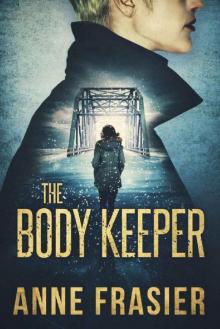 The Body Keeper
The Body Keeper Hush
Hush Play Dead
Play Dead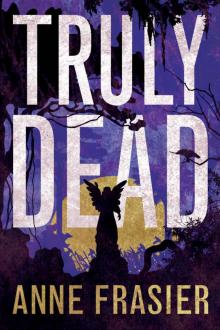 Truly Dead
Truly Dead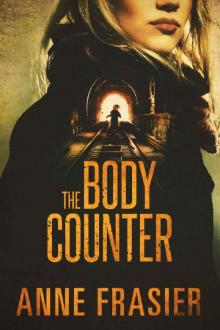 The Body Counter
The Body Counter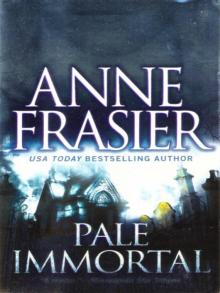 Pale Immortal
Pale Immortal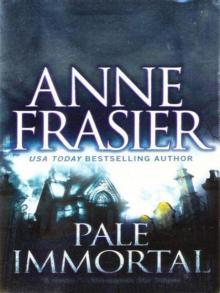 (2006) Pale Immortal
(2006) Pale Immortal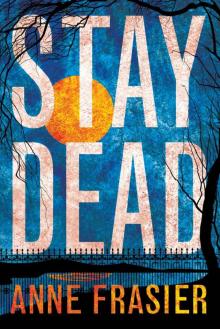 Stay Dead (Elise Sandburg series)
Stay Dead (Elise Sandburg series) Sleep Tight
Sleep Tight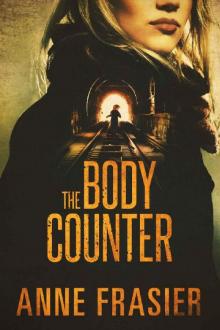 The Body Counter (Detective Jude Fontaine Mysteries Book 2)
The Body Counter (Detective Jude Fontaine Mysteries Book 2)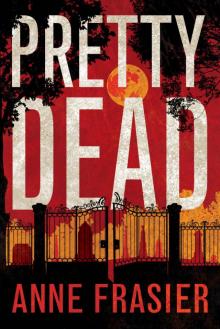 Pretty Dead
Pretty Dead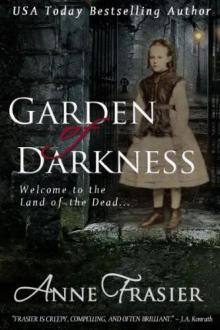 Garden of Darkness
Garden of Darkness